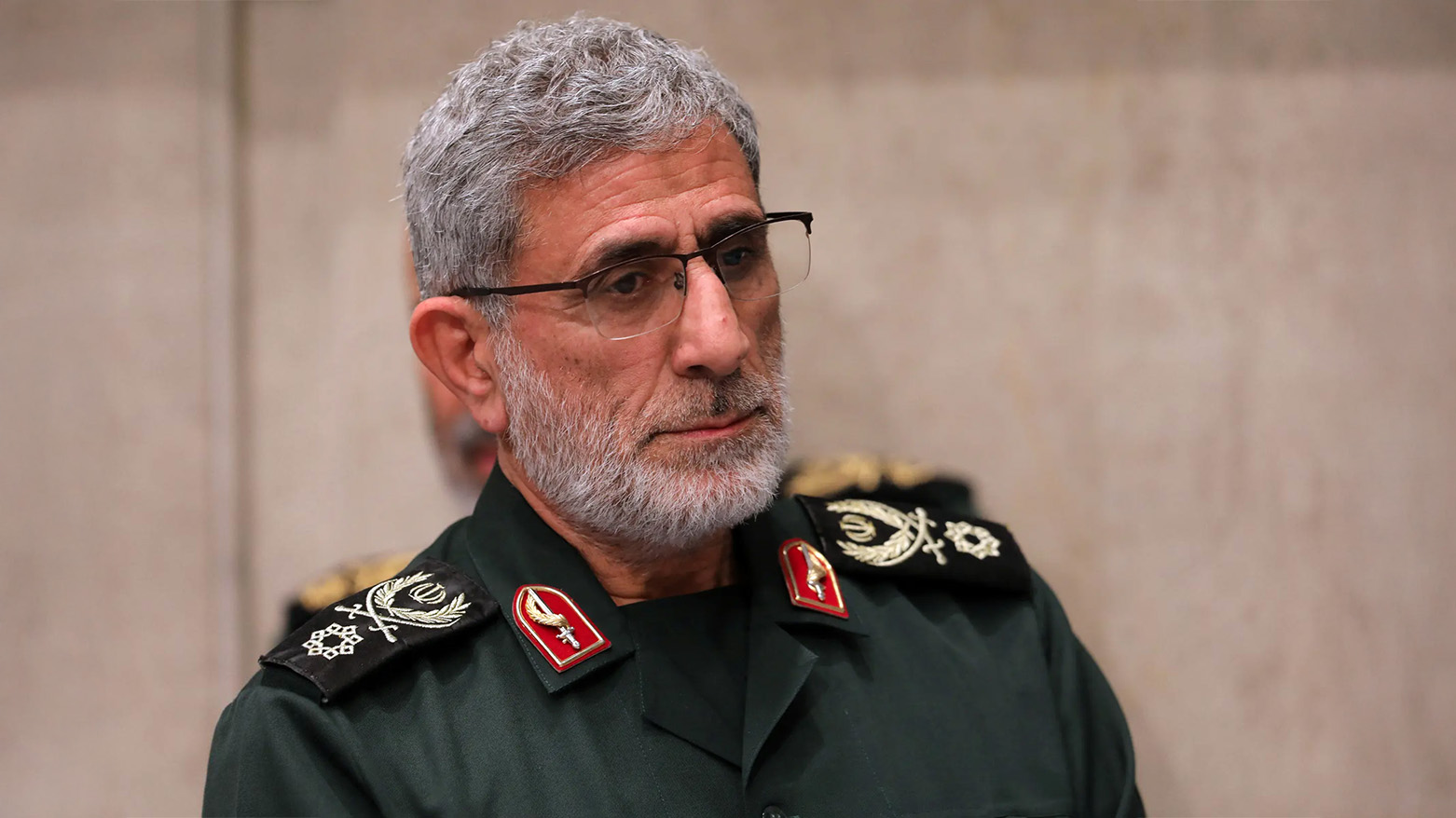Iran Warns Iraqi Militias to Stand Down Amid U.S. Strikes on Houthis
According to credible sources cited by Asharq Al-Awsat, Qaani’s mission carried an unambiguous warning from Tehran: should Iraq-based factions act in solidarity with the Houthis or initiate hostilities, Baghdad itself could become a target for U.S. retaliation.

ERBIL (Kurdistan24) – Iran has reportedly issued firm instructions to its allied Shia militias in Iraq to halt all military activity and avoid provoking American and Israeli forces. The directive, relayed through Quds Force (IRGC-QF) Commander Esmail Qaani during a secret visit to Baghdad, comes amid heightened tensions following sustained U.S. airstrikes on Houthi positions in Yemen.
According to credible sources cited by Asharq Al-Awsat, Qaani’s mission carried an unambiguous warning from Tehran: should Iraq-based factions act in solidarity with the Houthis or initiate hostilities, Baghdad itself could become a target for U.S. retaliation.
“U.S. military strikes on Houthi positions could quickly extend to Baghdad,” Qaani is reported to have told militia leaders during the visit.
The commander urged all factions to suspend military operations, reduce visible armed presence, and maintain a low profile during what he described as a “sensitive phase.” A senior figure within one of the Iraqi factions confirmed to Asharq Al-Awsat that the message from Tehran was clear: avoid any move that might be interpreted as a provocation.
“A single spark could ignite a new front in Iraq,” the faction leader reportedly warned.
This latest directive underscores Iran’s concern that the regional conflict—currently centered on U.S. and Houthi hostilities—could spiral into a broader confrontation involving Iraq. Tehran is said to be particularly wary of Washington’s growing resolve, especially under President Donald Trump, who recently vowed to “completely annihilate the Houthis” and issued stern warnings to Iran over its continued support for the group.
During his visit, Qaani met with senior members of the Iran-aligned Coordination Framework and various militia leaders to deliver the message personally. While reaffirming Tehran’s ongoing commitment to its allies in Iraq, Qaani emphasized that this was not the time for confrontation.
His efforts appear to have been met with a degree of receptiveness among militia leaders, many of whom have been facing mounting international pressure in recent months.
In a tangible response to the situation, Yemen’s Houthi movement has reportedly shuttered a strategic office it had opened in Baghdad near the Green Zone. The facility, which had functioned as a media and business center promoting the Houthi cause, was established in early 2023 with the backing of a Shia party within the Coordination Framework. Sources told Asharq Al-Awsat that banners bearing slogans in support of Houthi leader Abdul-Malik Al-Houthi were recently taken down following a stern internal warning. Additional closures of Houthi-linked offices in Baghdad and southern Iraq are reportedly being considered.
The Iraqi government has officially denied allegations made by Foreign Policy magazine that the Houthis were operating a training camp in Diyala province. Still, the presence of Houthi-affiliated personnel and activities in Iraq has raised alarm among U.S. and Yemeni officials. Yemen’s Minister of Information, Moammar Al-Eryani, confirmed to Asharq Al-Awsat that his government is monitoring such activities closely.
“We value Iraq’s concern and cooperation, and we urge the Iraqi government to firmly oppose any political, media, or logistical activity by the Houthis on its soil,” he said.
Meanwhile, U.S. Defense Secretary Pete Hegseth held a phone call with Iraqi Prime Minister Mohammed Shia Al-Sudani on Sunday to discuss ongoing military operations focused on safeguarding maritime security in the Red Sea and deterring Houthi threats to international trade routes. The discussion highlighted Washington’s strategic interests in the region and its intent to coordinate with Baghdad on countering Iranian influence and proxy activities.
Read More: Iraqi PM holds productive call with US Secretary of Defense to discuss key issues
As U.S. airstrikes continue to target Houthi strongholds in Sanaa, Saada, Al-Bayda, and Al-Jawf, the broader regional dynamics remain fluid and volatile. Tehran’s efforts to restrain its allies in Iraq signal a cautious approach aimed at preventing an uncontrollable escalation. Whether these efforts will succeed in averting further conflict remains to be seen, but for now, Iraq appears caught in the crosshairs of a high-stakes confrontation between Iran, the United States, and their respective regional allies.